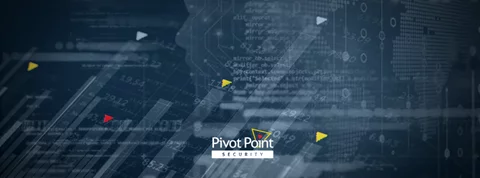Last Updated on January 15, 2024
Is your information security program aligned with one or more “open, trusted frameworks” like ISO 27001, NIST 800-171, SOC 2, or the Cloud Security Alliance Cloud Controls Matrix (CSA CCM)? Security frameworks take on even greater strategic importance when money is tighter and efficiency and effectiveness are extra critical.
To discuss strategies for moving cybersecurity forward in an economic crunch, John Verry, Pivot Point Security CISO and Managing Partner and host of The Virtual CISO Podcast, recorded a special briefing episode for security leaders.
Optimize organizational resilience
Open, trusted frameworks are best-practice guidance on how to optimize your information security program. And optimizing your information security program inherently helps improve your organizational resilience.
For example, aligning with a trusted framework like ISO 27001 immediately elevates your security team’s expertise and effectiveness by leveraging proven principles.
“You don’t end up in a situation where you’re reinventing security,” says John. “It also ensures that your team doesn’t miss some key element.”
There’s a reason why brain surgeons and pilots use checklists.
Helps ensure interoperability
Another benefit of sticking with a trusted framework is to help ensure that all your security products seamlessly interoperate and collectively provide the protection and risk reduction you need.
“In a down economy, you can’t afford to make investments and then find out that they don’t play nice together,” John points out.
Well integrated security solutions also help streamline operations and reduce costs.
Bridging strategy and tactics
Another benefit of trusted frameworks is they give everyone a common vocabulary and a tangible understanding of what you’re looking to accomplish with security initiatives, controls, etc.
For example, instead of saying “We need to manage cybersecurity!” and not explicitly defining what that means, trusted frameworks often spell out exactly what is required to achieve best-practice security.
Differentiates you competitively
When you can demonstrate—especially through a third-party attestation like an ISO 27001 or CMMC certification —that your business is secure and compliant, you’re effectively positioned as a security frontrunner in many industries.
“If you hand someone an ISO 27001 certificate, they’re going to be excited to get that, and it’s going to have the intended effect,” assures John.
What’s next?
To hear the complete special episode with John Verry on managing security in a down economy, click here.
Want to learn more about trusted frameworks and security strategy? Try this blog post: Why a Trusted Framework Should Be Part of Your Information Security Strategy






















